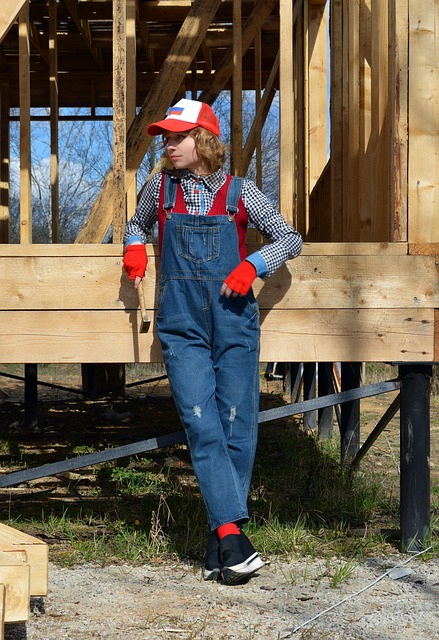Discover the Construction Work Environment in Calgary
If you live in Calgary and speak English, a career in construction can offer stable employment, competitive pay, and room to grow. From building homes to large infrastructure projects, construction sites demand physical strength, attention to safety, and teamwork. Learn what daily work is like, which roles are most in demand, and how to prepare for training, certifications, and career advancement in Calgary’s dynamic construction industry.

Working Conditions and Safety on Calgary Construction Sites
Calgary’s construction sites operate under strict safety regulations governed by Alberta’s Occupational Health and Safety Act. Construction workers experience varying conditions based on project type and season. During winter months, temperatures can drop below -20°C, requiring specialized cold-weather protocols and equipment. Summer brings intense heat and longer daylight hours, often allowing for extended work schedules.
Safety standards on Calgary construction sites are rigorous, with mandatory personal protective equipment (PPE) including hard hats, steel-toed boots, high-visibility vests, and task-specific gear. Most sites require workers to complete safety orientation training and hold valid certifications such as Construction Safety Training System (CSTS) or Leadership in Safety Excellence. Many large projects implement comprehensive safety management systems with daily toolbox talks, regular inspections, and incident reporting procedures.
The physical demands of construction work in Calgary are significant. Workers typically spend 8-10 hour days performing tasks that may involve lifting, climbing, operating machinery, or working at heights. Modern sites increasingly incorporate ergonomic practices and mechanical assistance to reduce injury risks. Indoor and outdoor environments present different challenges, from dust and noise control in enclosed spaces to weather exposure on exterior projects.
Key Roles, Skills, and Daily Responsibilities in Construction
The Calgary construction industry encompasses numerous specialized roles, each requiring specific skills and carrying distinct responsibilities. General laborers perform essential tasks including site cleanup, material handling, and basic construction activities. They need physical stamina, basic tool knowledge, and ability to follow instructions carefully.
Skilled trades form the backbone of construction projects with roles including carpenters, electricians, plumbers, welders, and heavy equipment operators. These positions demand trade certification through apprenticeship programs, typically involving 3-4 years of combined classroom learning and on-the-job training. Daily responsibilities for trades workers involve interpreting blueprints, installing systems according to code requirements, troubleshooting issues, and ensuring quality workmanship.
Management positions in Calgary construction include project managers, site supervisors, estimators, and safety officers. These roles require strong technical knowledge combined with communication, leadership, and organizational abilities. Daily responsibilities include coordinating subcontractors, managing schedules and budgets, ensuring regulatory compliance, and resolving on-site challenges.
Across all positions, certain core skills prove valuable: problem-solving abilities, attention to detail, spatial awareness, technical aptitude, and teamwork. Communication skills are increasingly important as projects become more complex and diverse. Digital literacy is growing in importance as the industry adopts new technologies like Building Information Modeling (BIM), drone surveys, and project management software.
Career Growth and Opportunities in Calgary Construction Industry
Calgary’s construction industry offers substantial pathways for advancement. Entry-level positions typically start with general labor roles requiring minimal experience, with wages beginning near Alberta’s minimum wage. As workers gain experience and skills, opportunities for specialization and increased responsibility emerge. Many professionals begin their careers through apprenticeship programs, which combine paid work experience with classroom education.
Mid-career growth often involves earning additional certifications, specializing in niche construction areas, or moving into supervisory roles. Project management positions generally require several years of field experience combined with relevant education in construction management, engineering, or related disciplines. Senior management roles may require business acumen and understanding of contract administration, financial management, and strategic planning.
The Calgary construction industry experiences cyclical demand patterns influenced by economic conditions, oil prices, population growth, and government infrastructure spending. During boom periods, skilled workers are in high demand, creating opportunities for accelerated advancement and competitive compensation. Economic downturns can present challenges but also opportunities to diversify skills or gain experience in different construction sectors.
Emerging opportunities exist in sustainable construction, with growing demand for expertise in green building practices, LEED certification, and energy-efficient systems. Infrastructure renewal projects, commercial development, and residential construction continue to provide stable employment options. Technological advancement is creating new roles focused on construction technology implementation, virtual design, and building systems integration.
Calgary’s construction industry also benefits from proximity to major energy projects, creating specialized opportunities in industrial construction. The city’s continued expansion provides ongoing demand for residential and commercial construction professionals. For those willing to combine practical skills with continuous learning, the construction sector offers rewarding long-term career prospects with competitive compensation and the satisfaction of creating lasting structures.
Conclusion
The construction work environment in Calgary presents a complex landscape of opportunities, challenges, and responsibilities. From rigorous safety standards to diverse career pathways, the industry supports professionals at all experience levels while contributing to the city’s development. With continued growth in sustainable building practices and infrastructure development, Calgary’s construction sector remains a vital component of the local economy and an attractive option for those seeking hands-on careers with tangible results and advancement potential.




